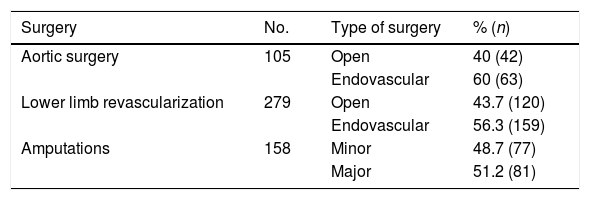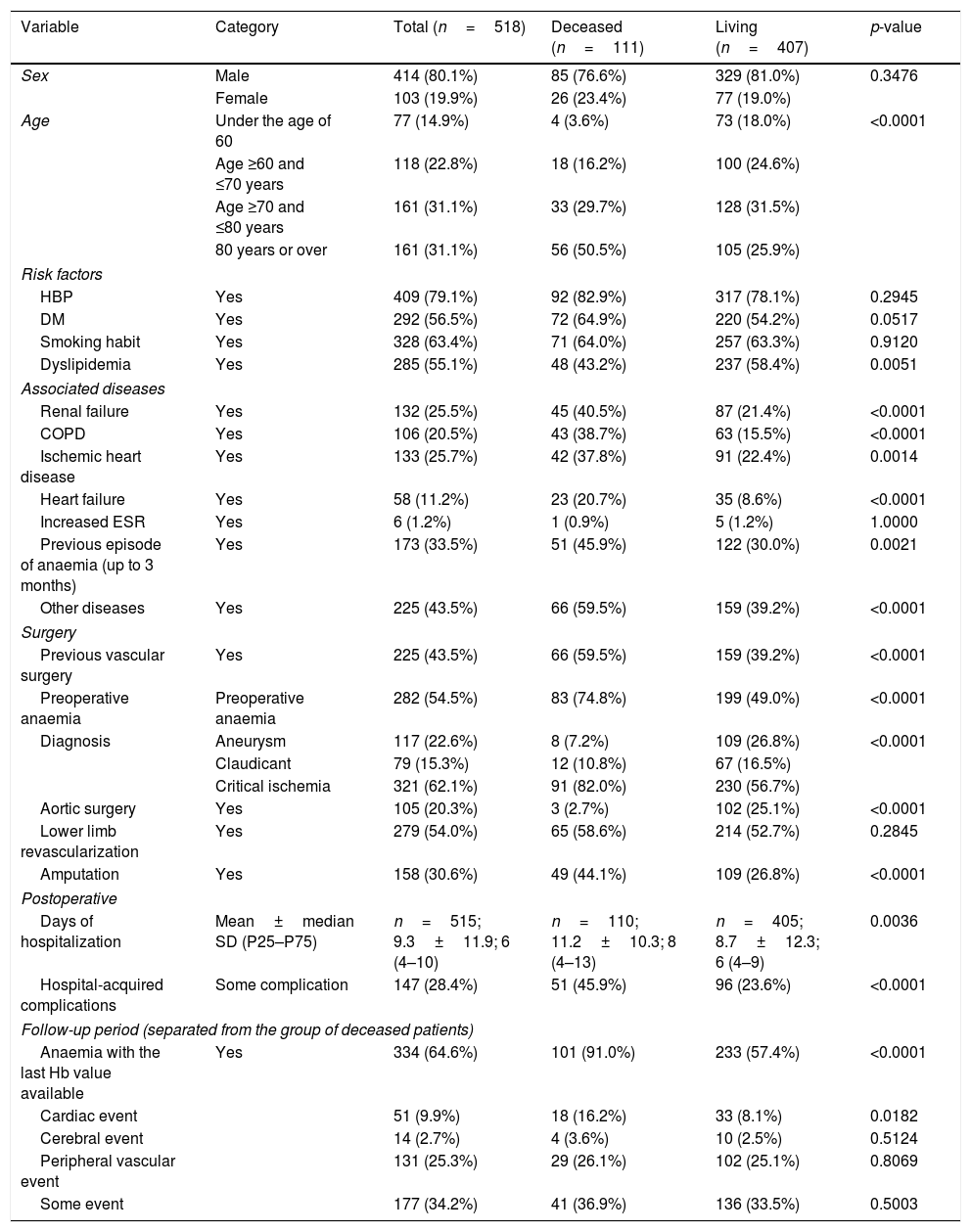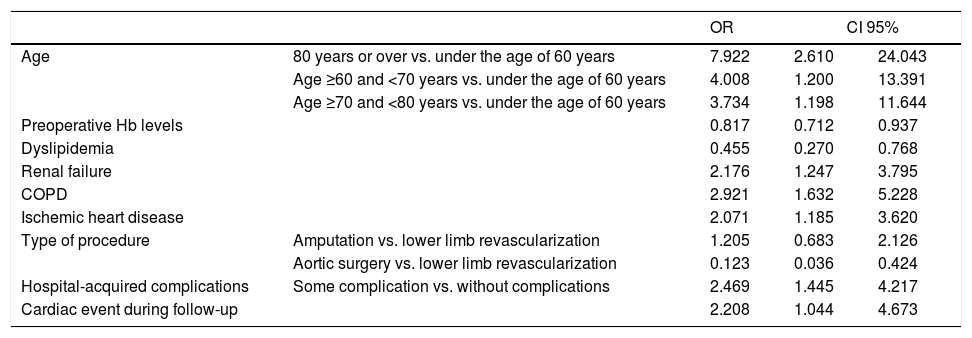In patients with peripheral artery disease requiring surgery, anaemia has been found to independently predict short and medium term higher morbidity and mortality.
Patients and methodsWe retrospectively studied all patients undergoing surgery, consecutively during 2 months in 12 vascular surgery units. We analyzed cardiovascular risk factors and preoperative hemoglobin. Statistical analysis was done with Kaplan–Meier for survival and logistic regression modeling to identify predictors of mortality.
Results518 patients were consecutively operated on in our vascular units, the mortality rate was 21% the first year and 34% for cardiovascular events. Preoperative anaemia was present in 63% of the ischemic patients and in 23% of the patients requiring aneurysm repair, one year after surgery it increased to 68% and 50% respectively.
When preoperative anaemia was superior to 10mg/dl, one year survival increased (96% vs. 90%), fewer cardiovascular events occurred and there were fewer amputations (24% vs. 68%).
ConclusionsOn multivariable analysis: age, renal failure, chronic lung disease, coronary artery disease, postoperative complications and previous cardiovascular events were associated with an increased risk mortality rate. Preoperative hemoglobin influenced proportionally such that for every 1mg/dl increase, the probability of mortality decreases by 0.81. Preoperative anaemia, especially when hemoglobin is inferior to 10mg/dl, is associated with an increased risk of death and amputation.
En los pacientes con enfermedad arterial periférica que requieren intervenciones quirúrgicas la anemia se ha comprobado que puede ser un factor independiente de mal pronóstico tanto a corto como a medio plazo.
Pacientes y métodosRevisión retrospectiva de los pacientes intervenidos en cirugía vascular de forma consecutiva durante 2 meses en 12 unidades de cirugía vascular. Se analizan los factores de riesgo habituales y se valora la hemoglobina (Hb) preoperatoria. Con un seguimiento de 12 meses, se registran eventos cardiovasculares, muerte y cifras de Hb. El análisis de supervivencia con tablas de Kaplan-Meier y, posteriormente, análisis de regresión logística para evaluar los factores que pueden influir en la mortalidad.
ResultadosEn 518 pacientes, la mortalidad al año es del 21% y los eventos cardiovasculares del 34%. La anemia preoperatoria fue del 63% en isquémicos y el 23% en aneurismas, siendo superior al año de la cirugía, el 68 y el 50%, respectivamente. Si la Hb preoperatoria es mayor de 10mg/dl, la supervivencia al año es mayor (96% vs. 90%), se producen menos eventos cardiovasculares y menos amputaciones (24% vs. 68%).
ConclusionesEn el análisis multivariante, las variables que influyeron en la mortalidad fueron la edad, la insuficiencia renal, la enfermedad pulmonar obstructiva crónica, la cardiopatía isquémica, haber presentado complicaciones hospitalarias, tener un evento cardiovascular. La Hb preoperatoria influye proporcionalmente, de manera que cada unidad de Hb que aumenta, disminuye la probabilidad de muerte 0,81 veces. Una anemia con Hb preoperatoria inferior a 10 se asocia a una mayor probabilidad de amputación de la extremidad y de fallecimiento.













